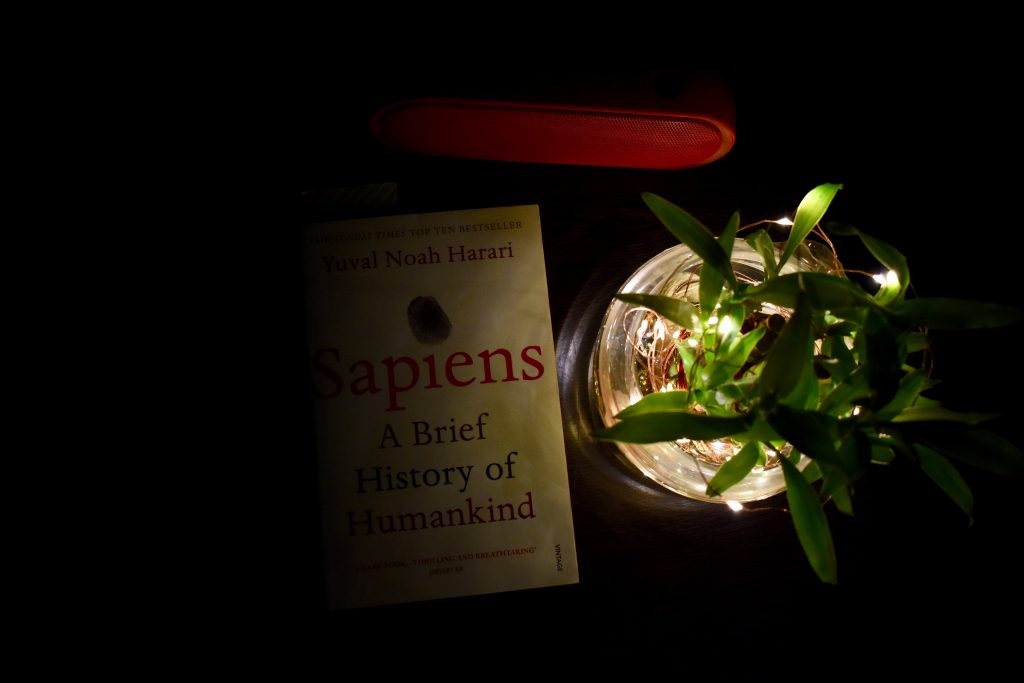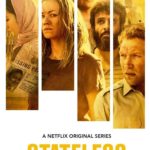
Sapiens: A Brief History of Humankind - Yuval Noah Harari
This is the first non-fiction book that I’ve reviewed here. Rather than talking about narrative techniques like I usually do I’m just going to talk about the bits that I liked and why.
For those who know nothing about this book it is a history of our species from pre-history until now.
Harari's Voice
The way that the information is conveyed is what makes it so engaging. If someone else had presented this information it wouldn’t have been half as good.
Harari has a unique voice and the matter-of-fact way that he posits information is awesome. A lot of the information in the first half of the book was mind blowing for me but he doesn’t talk about it that way.
He is also really funny. This comes down to the turns of phrase that he uses. I believe that he is a lecturer and I think that he would be brilliant to see speak.
Co-Existence in Pre-History
The first thing that I found really interesting was our (Homo-Sapiens) co-existence with other members of the homo genus. I had always thought that our species had evolved more or less in a linear fashion – one species leading to another and so one.
I was amazed to learn that we existed at the same time as many other species, such as Homo-Neanderthal and Homo-Erectus.
I was also amazed to learn how it looks like the many other homo species were actually eradicated by our actions – either through violence or just taking over their foraging grounds as we expanded.
From Hunter Gatherer to Farmer
I have only ever heard of the agricultural revolution talked about in glowing terms. That is, that it was the turning point for man from a bleak scavenger existence to one of domestication as we learnt new skills.

The facts appear to be somewhat different from that rosy tale. First my mind was blown about what we know about our hunter gatherer roots. We had a much more balanced diet than we did after the revolution. Our work day was less – because we didn’t have to rely on eking out meagre increases in production from a single crop.
If there weren’t any mushrooms where they usually grew the hunter gatherer could find something else to eat. We were better skilled at more tasks. Hunter gathers needed to be able to hunt a scavenge for a variety of animals and plants especially true as they moved from one location to another.
Apart from the ever present danger inherent in a nomadic lifestyle of attack of an animal of prey it seemed like a pretty good life.
The Agricultural Revolution
The revolution also made us more prone to disease. Our life expectancy dropped due to this and to the lack of diversity in our diet. The move to stay put also caused a boom in population so the extra food that we thought would save us all actually wasn’t there because there were more mouths to feed.
So why didn’t we just go back? Well it took generations for these changes to occur. Initially the harvesting of grain would have looked great. But then, when we started having more children because we weren’t moving around as much, and the food evaporated, it was too late.
Who was going to leave behind their children and elderly so they could hit the road again? So we stayed put and generation after generation we worked harder and harder to get a little bit more out of the land.

Did we Domesticate Wheat or did Wheat Domesticate Us?
The decision to stay in one place didn’t happen immediately either. As we left behind grains that we had processed in one area they started to grow more and more in that place. This made it more likely for us to spend longer there the next time we came through.
So was it us that made a decision to stop roaming and become farmers or did wheat make this decision for us?
We Don't Come in Peace
The next big mind blower was that while we were still hunter gathers and moving into new areas I assumed that we co-existed with nature pretty well. I had assumed that we didn’t start having a huge impact on the world around us until we started building towns and cities. It appears I was wrong.
As homo-sapiens moved into a new area large animals died off. We also had huge impacts on the rest of the eco-system as well. And it wasn’t just animals and plants that we were killing.
As homo-sapiens moved into new areas the local homo species died as well. We were not good relations to our cousins.
Collective Myth
Harari posits that it is collected myth that allowed homo-sapiens to operate in large groups. The ability to operate in large groups towards a common goal is what gave us our power over our cousins and our environment.
There is a fantastic section on the myth of the Purgeot company that explains this concept well.
In essence it is because we can all believe in something that isn’t real (doesn’t have a physical manifestation), like the rule of law, that allows us to operate in large groups. The myth supersedes all of us and it doesn’t require an individual’s belief for it to continue. If one of us dies the rule of law continues to be believed in.
Religion Deconstructed
There is a fantastic section of the book where Harari systematically deconstructs religion myths. A highly evocative read.
This leads into a section where he takes the same approach to capitalism, communism and other isms.
He doesn’t do this to show how false these things are but to show how the idea of collective myth works. It’s a fantastic ride.
Science and Empire Feedback Loop
I found this section fascinating as well. Essentially we moved from a phase of thinking that we knew everything and whatever we didn’t know wasn’t worth knowing to wanting to learn about the unknown.
For the first time maps started appearing with holes in them where we didn’t know what was there. More importantly people wanted to find out what was there.

But exploration and scientific endeavour is expensive. So the state picked up the tab and reaped the rewards. And so it continued the state paid for science and science fed the state with discoveries.
A Final Titbit
I learnt the origin of the concept of the Aryan people. A master race that superseded all other culture. There is a great section on this and how a linguist essentially paved the way for racism based on science and the rise of the Third Reich.
Ok, that’s probably a bit far but it isn’t a huge leap.
What I Didn't Like
Towards the end of the book Harari starts talking about where we are headed. I wasn’t a huge fan of this section. Mainly because I found the earlier sections so interesting as I was learning things that I didn’t know.
When we moved into the area of what might happen we stopped learning. Regardless of how logical the outcomes he talked about were I just didn’t feel that it gelled with the rest of the book.
Overall I would highly recommend this book for anyone who would like to know where we came from and why our societies operate the way they do. Having said that I think that there are some sections that will be too hard for some to read because of how confronting they are to peoples world beliefs.
But as Harari says: it is in our ability to hold true multiple conflicting myths that makes homo-sapiens great – so go on have a read.






